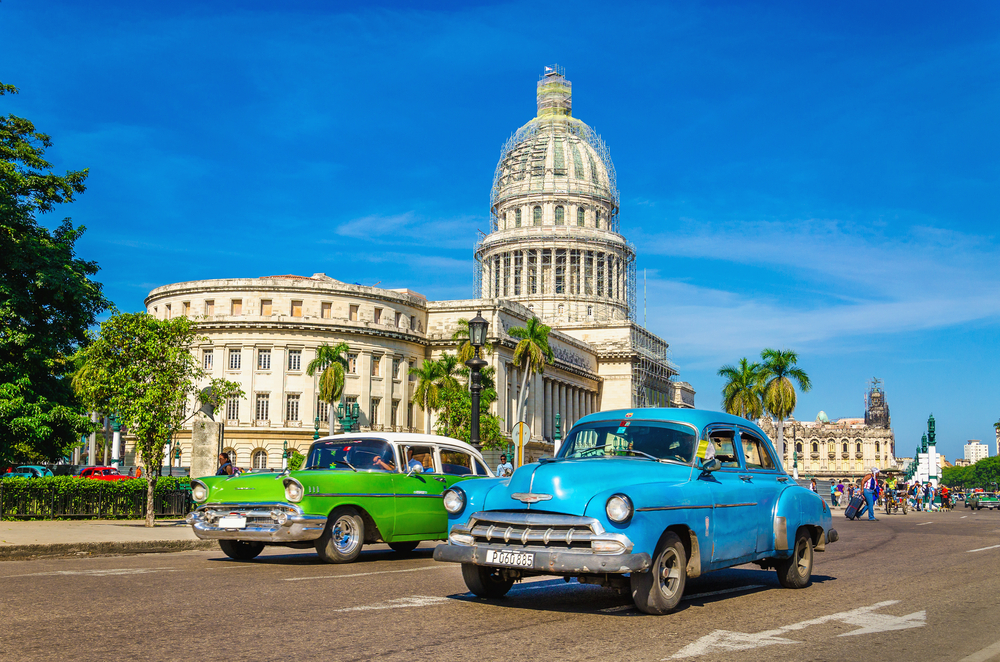
Get Paid to Share Your Expertise
Help shape the future of business through market research studies.
See Research StudiesUnderstanding the worldwide marketplace and the cultural differences that impact business decisions is vital—which is why several top EMBA programs today offer students the opportunity to engage in immersive learning experiences outside the US.
These types of experiential learning modules can give students the convenience and peace-of-mind that comes with matriculating in a school based in the US, while also granting them opportunities that might otherwise be most accessible in a global EMBA or a program outside the US.
“At Darden, we take pride in being responsive to student interests. This is particularly true in our executive formats where our strategic size allows our programs to be flexible and administratively nimble,” Brett Twitty, Director of Admissions for Executive Formats at the Darden School of Business at University of Virginia tells Ivy Exec. “Our EMBA program leaders regularly collaborate with students to craft meaningful curricular and extracurricular experiences, and the Global Business Experience (GBE) to Cuba is a particularly compelling example of this student-faculty interaction.”
In September 2015, after their return from the required International Leadership Residency to China, the EMBA 2016 cohort began talking with the Program leadership about creating an elective Global Business Exploration to Cuba. The number of interested students met the threshold for offering the course and planning began.
In 2016, Darden will bring 22 of its EMBA students to Cuba for a special seminar on the island nation’s economy in transition. The seminar is designed to give students a better insight into Cuba as it reemerges into the global economy after years in isolation. Site visits and speakers are scheduled that directly relate to the industries represented in the student body: healthcare, energy, sustainability, media, export goods, transportation, hospitality and finance.
“This trip is comparative in nature, allowing participating students to experience and encounter their respective industries while in Cuba,” Twitty says. “Students will learn about Cuban tourism, healthcare, foreign investment, transportation, to name a few of the featured industries, while developing a broader sense of the cultural, political and social context of this unique and evolving country. Given the recent developments in US-Cuban relations, our students have picked a truly fascinating moment to visit this strategically significant nation.”
Students will head to Cuba armed with background knowledge of the country’s history, culture, politics and business climate. Once on the ground, students will spend just over a week meeting with business and government leaders. They’ll also encounter cultural immersion experiences, including museum visits and other outings.
Darden is not the only EMBA program offering global learning opportunities to its students. The Stern School of Business at NYU gives students a range of overseas learning options, including study tours of Japan, South Korea, Poland, Croatia, Italy, Germany, Madrid and many others. While on tour, the students receive introductions to top-tier executives at major businesses in those countries: from Samsung in South Korea to Skoda in the Czech Republic to factory tours at Nike in Thailand.
The Fuqua School at Duke also offers international experiential learning opportunities. Students in the past have visited a wide range of businesses overseas: from Emirates Airlines in Dubai, UAE to the Baltika Brewery in St. Petersburg, Russia. These courses are centered around live case studies, corporate visits and “experience days” in which students have immersive cultural experiences that are guaranteed to take them out of their typical comfort zone.
What makes Darden’s program in Cuba particularly unique is that the students themselves have collaborated with program leadership and faculty to make this elective course a reality.
“The students worked together to identify the country of interest, and are currently developing the background briefing materials that will support and inform the work they do while abroad,” Darden’s Twitty explains.
By empowering the students themselves to select their country of choice and to design their studies, the program gives them the freedom to build the type of global learning experience that best suits their needs.

 R Kress
R Kress